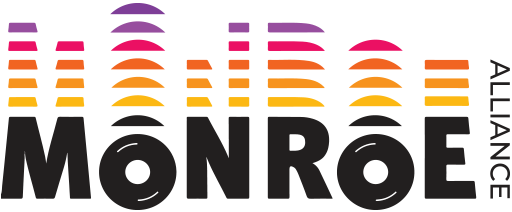Partners:
Institute of Communications and Computer Systems
The “Utility-based Networking experiments for Improving QUality of Experience in mobile broadband environments” (UNIQUE) project of MONROE OC1 aimed at analyzing the potential and performance of a theoretical decision-making framework in real Mobile BroadBand (MBB) networks. The UNIQUE approach takes into account jointly QoS-QoE factors for fast and effective network optimization, e.g., network access and routing switching, through appropriately designed utility function decision-making. UNIQUE utilized the MONROE infrastructure for realistic experimentation and performance evaluation, while proving feedback and suggestions on the use of MONROE resources/services.
UNIQUE experiment was completed in two main phases, preceded by a preliminary (offline) stage. The latter involved an association of QoE evaluation to QoS profiles via an experiment that took place outside of the premises of MONROE. It involved various users, watching YouTube videos, and rating the perceived QoE, while the UNIQUE team was measuring the associated QoS parameters. The final outcome, a QoE-QoS table, was used as a means of virtual user classifier in the two main experimental phases, emulating the QoE rating that an online user would provide at a MONROE node if provisioned with the corresponding QoS profile. This was necessary for the experiments designed by UNIQUE, which involved dynamic adaptations, since it was not possible to control the behavior of a MONROE node at real-time. The obtained QoE-QoS table was provided to MONROE for further use by other potential users in the future in joint QoE-QoS related research experiments.
Phase I involved the completion of our utility-based decision-making framework for MBB networks with multiple access interfaces and its incorporation in a network selection approach for such mobile networks. A generic utility function was developed following the principles of component-based design, allowing for various types of extensions and application adaptations. The overall form of the utility framework takes into account both QoS (network-related) and QoE (user-related) parameters for decision-making. During Phase I, this utility framework was incorporated in a network access selection application tested over the MONROE nodes. A MONROE node monitors available MBB access interfaces and based on the utility rating determines the best access interface to use. Experiments over the MONROE nodes allowed a more effective and efficient parameterization of the developed utility framework, by allowing fast assessment of the impact of each parameter involved in real operational environments.
The results of this theoretical design and associated experiments were exploited in Phase II. In the latter, UNIQUE aimed at depicting through experimentation the benefits of the developed framework for efficient routing in MBBs. More specifically, based on the access interface ranking provided by the utility function framework, concurrent flow control is performed, in order to route the critical traffic from the best available interface and the non-critical traffic from the other available interface. Dynamic switching of paths as interface quality changes is demonstrated, hence proving the adaptability and the usability of the proposed routing mechanism in MBB networks.
Overall, the experience of the UNIQUE group with the MONROE platform (infrastructures, resources, interfaces and human support) is affirmatively positive. MONROE allowed a relatively-fast learning curve and familiarization period, a rapid experiment setup cycle, and easily accessible experimental results for successfully completed experiments. Access to MONROE gave us the opportunity to validate our approach and quantify its performance with real data in a short time period, contributing to the fast evolution of our research. The obtained results aided considerably in the promotion of our current position in the state-of-the-art. Through the involvement in development and experiments, the UNIQUE team provided multi-facet feedback regarding the operation of MONROE and potential improvements/extensions. UNIQUE contributed the developed software of each phase to be used as an experimental service and allow maximum possible re-use by future users and hopefully contributing towards making MONROE an attractive venue for experimenting with QoE/QoS related issues over MBBs.


